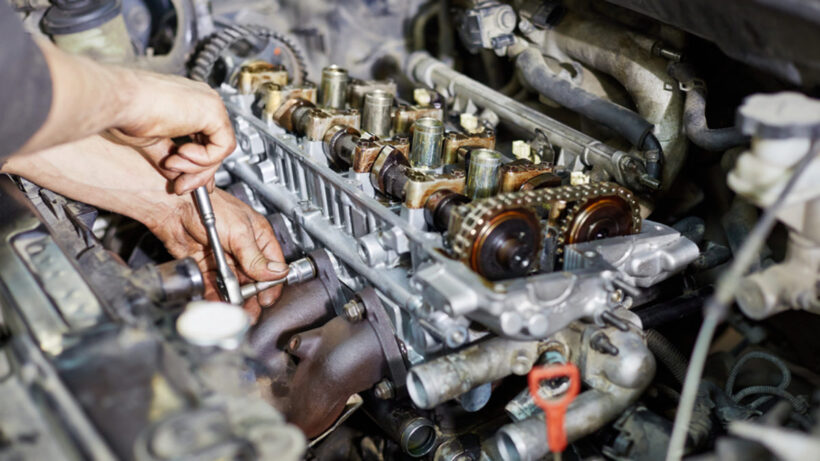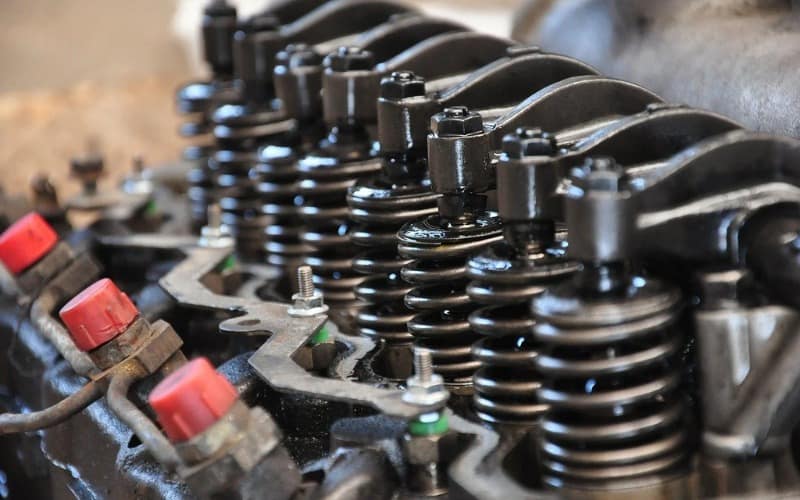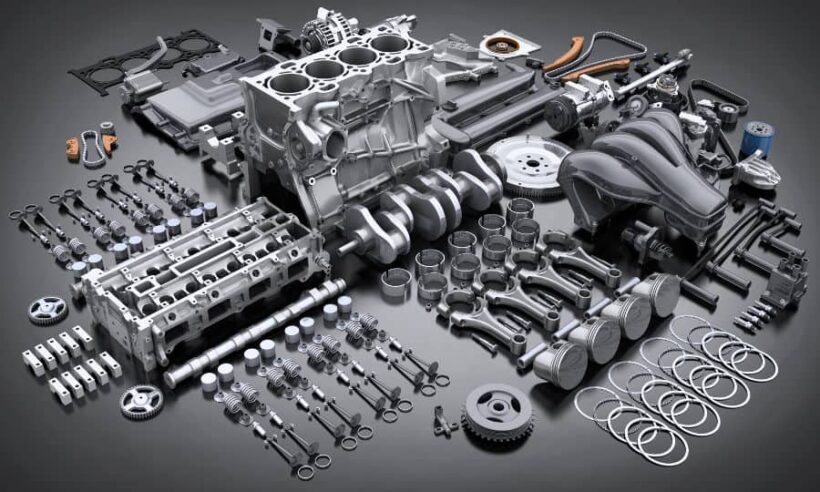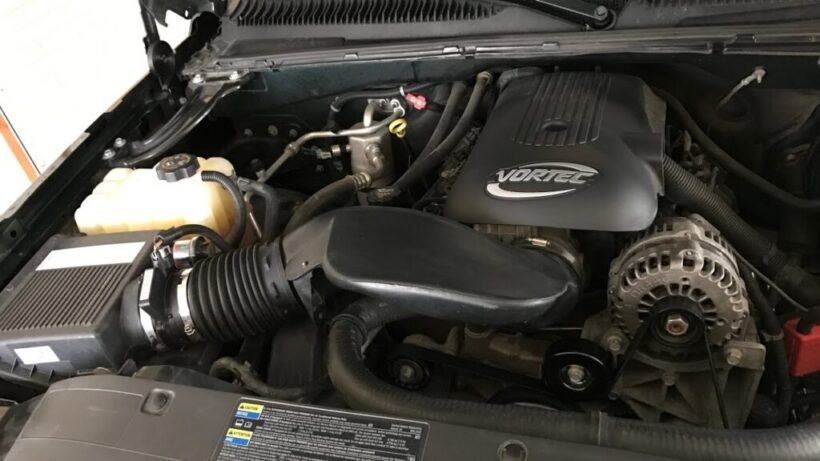If you use a car, there are tendencies that mechanical problems can arise. One of such problems is the 5.3 ticking noise when warm. Ticking noises are mostly associated with issues in the engine or other mechanical components of the car.
Ticking noise refers to the tapping sound coming from the engine of a vehicle when it has reached its maximum operating temperature or having cooling problems. However, experiencing 5.3 ticking noise is not a rare problem and it is specifically associated with General Motors (GM) V8 engines with a displacement of 5.3 liters (5.3L V8 engines) such as the Chevrolet Silverado and GMC Sierra.
Not only could it be annoying, but if you decide to not attend to it and fix it, it could pose a dangerous risk to your car’s engine. The more you ignore or prolong fixing it, the costlier the issue gets as ticking could cause other parts of the engine to stop functioning right.
What Are The Symptoms of Ticking?

Of course, the most obvious symptom of ticking in any car is the ticking noise the engine makes. Sometimes, the noise may vary and not be different from engine revs but it is now being reported that ticking noises get louder with a rise in engine revs.
Another one is the misfiring of your car’s engine. A ticking noise could be a sign that your car has a faulty lifter and this will affect the combustion process of your car engine.
However, the ticking noise can come and go depending on the conditions of the vehicle but this does not mean that the ticking noise should be ignored.
What It Means When Your Car Starts Ticking
Your car ticking is absolutely telling you it’s about to fail and it needs maintenance. Hearing this noise means there’s something wrong with the cooling system or another part of your car’s engine.
What Causes The 5.3 Ticking Noise?

Based on our research and reading some articles on motorsmid, Ticking sounds are often a result of issues in the engine or other mechanical parts of an automobile.
It can be caused by a lot of things but the most common one is a bad cooling system. Now, let’s take a look at other causes.
Low Oil Lubrication And Viscosity
Inadequate lubrication can cause important components of a car engine to wear and tear, thereby leading to overheating and malfunctioning. Also, when the viscosity of your engine oil becomes thinner under hot temperatures, it might not be able to properly lubricate the moving parts as it should thereby increasing the chances of a ticking sound.
Camshaft Phaser Issues
A standard 5.3L V8 engine adjusts the timing of the engine valve using camshaft phasers. Over time as a result of constant functioning, these camshaft phasers can become worn out or clogged. If the phaser malfunctions too, it won’t be able to adjust the engine valve timing correctly.
All of these problems with the camshaft phasers will lead to increased noise in the car’s engine and reduced overall performance of the vehicle.
Carbon Buildup
The accumulation of carbon deposits on the valves, piston, and combustion chamber surfaces of your engine can interfere with its normal operation, potentially causing ticking noises. Carbon deposits can also harden up due to warm engine conditions and cause ticking.
Timing Chain And Belt Issues
When a timing chain or belt is not properly aligned or tensioned because it is worn out or loose, it can also cause ticking. This issue might need quick mechanical attention to prevent damage to the engine.
How Do You Stop The 5.3 Ticking Noise?
Finding the best solution involves getting to the bottom of the culprit. We already know that the most common cause of 5.3 tick is a result of air leakage in the cooling system and others have been mentioned. Although the severity of the ticking noise can vary, the most appropriate approach is to consult a qualified mechanic to provide an accurate diagnosis for your vehicle.
Other solutions can be:
- Using high-quality engine oil and ensuring regular changing intervals to maintain proper lubrication and reduce debris buildup.
- Camshaft phaser replacement if the ticking noise persists.
- Regular cleaning of carbon deposits using fuel system cleaners.
- Inspection of lifters and pushrods.
- Replacement of timing chain or belt.
Does 5.3 Ticking Noise Go Away?

This is one of the most asked questions about ticking noises and the straight-up answer is no, the noise will not go away and may even worsen with time if it is not attended to.
Although based on what you want, the noise can be adjusted to be noticeable or otherwise.
Preventive Measures
Preventive measures play a crucial role in maintaining the health and longevity of any mechanical system, and addressing the issue of a ticking noise when warm is no exception. By taking proactive steps, you can potentially avoid or minimize the occurrence of such noises.
Regular maintenance is key to preventing ticking noises. This includes following the manufacturer’s recommended service schedule, which typically involves oil changes, filter replacements, and inspections of critical components. By adhering to these guidelines, you can ensure that your vehicle’s engine and related systems are in optimal condition.
Using high-quality fuel and lubricants is another important preventive measure. Poor-quality fuel or lubricants can contribute to engine noise and wear, so it’s essential to choose products that meet or exceed the specifications outlined by the manufacturer.
Your driving habits also have an impact. Avoiding aggressive driving, excessive idling, and abrupt accelerations can reduce stress on the engine, minimizing the likelihood of developing ticking noises. Additionally, proper storage and temperature considerations, such as parking in shaded areas and avoiding extreme temperature fluctuations, can help preserve the integrity of engine components.
By implementing these preventive measures, you can reduce the risk of encountering ticking noises when warm and ensure a smoother and more reliable performance from your vehicle.
Conclusion
5.3 ticking noise can be frustrating but that does not imply that it is a catastrophic issue. However, addressing the problem in a timely manner can help prevent further damage and ensure optimal engine performance.
Also, remember that regular maintenance and attentive care are essential for keeping your vehicle running smoothly and minimizing the occurrence of ticking noises or other mechanical problems.

